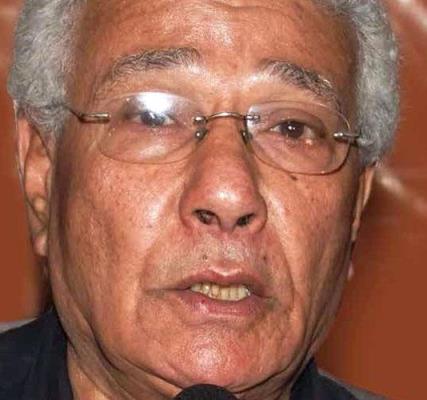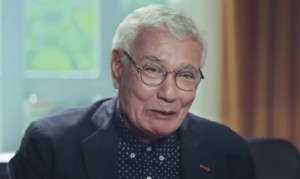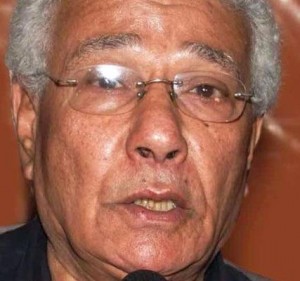Said Al-Kafrawy (1939-2020)
Said Al-Kafrawy also spelt Said El-Kafrawi was born in 1939 in the Egyptian city of El Mahalla El Kubra. El Kafrawi launched a writing career focusing on short stories, a genre to which he remained devoted until his death.
El Kafrawi couldn't help but be steeped in literature and culture, considering the company he kept. He began his literary life in the “Mahalla Culture Palace” in 1964 within the literature group that included: Nasr Hamed Abu Zaid, Gaber Asfour, Muhammad al-Mansi Qandil, Muhammad Farid Abu Saada, Gar el-Nabi el-Helw' and Mohamed Saleh, a group that all left the small industrial city for Cairo at close intervals, and formed what was later called “the camp of El Mahalla.”
In 1970, near the end of Gamal Abdel Nasser’s presidency, al-Kafrawi was arrested briefly over the publication of a short story of his. Mahfouz reputedly used this experience in shaping the character Ismail Sheikh in his 1975 novel Karnak Cafe.
El-Kafrawi is considered one of the great storytellers in contemporary Arab literature and earned the nickname of the “monk of the short story” completing fifteen collections of stories. He began writing short stories in the 1960s and his first collection Madinat Al Mowt Al Jameela (The Beautiful City of Death) was published in 1985. His stories were always rooted in every day Egyptian life and are defined by detail, atmosphere and the surreal.
In 1998, the American University in Cairo Press published an English anthology of Al Kafrawi's short stories called The Hill of Gypsies and Other Stories.
Among his story collections are “Zubeida and the Monster”; “Antique Days”; “The City of Beautiful Death”; “Music Kiosk.” , “O heart, who buys you” ; “Al Bughdadiya” – the latter earned him the Sultan Qaboos Prize for Culture.
He was awarded Egypt’s State Prize of Merit for Literature in 2016. Al Kafrawy also edited the cultural series “Arabic Horizons” published by the state-run General Egyptian Book Organisation.







